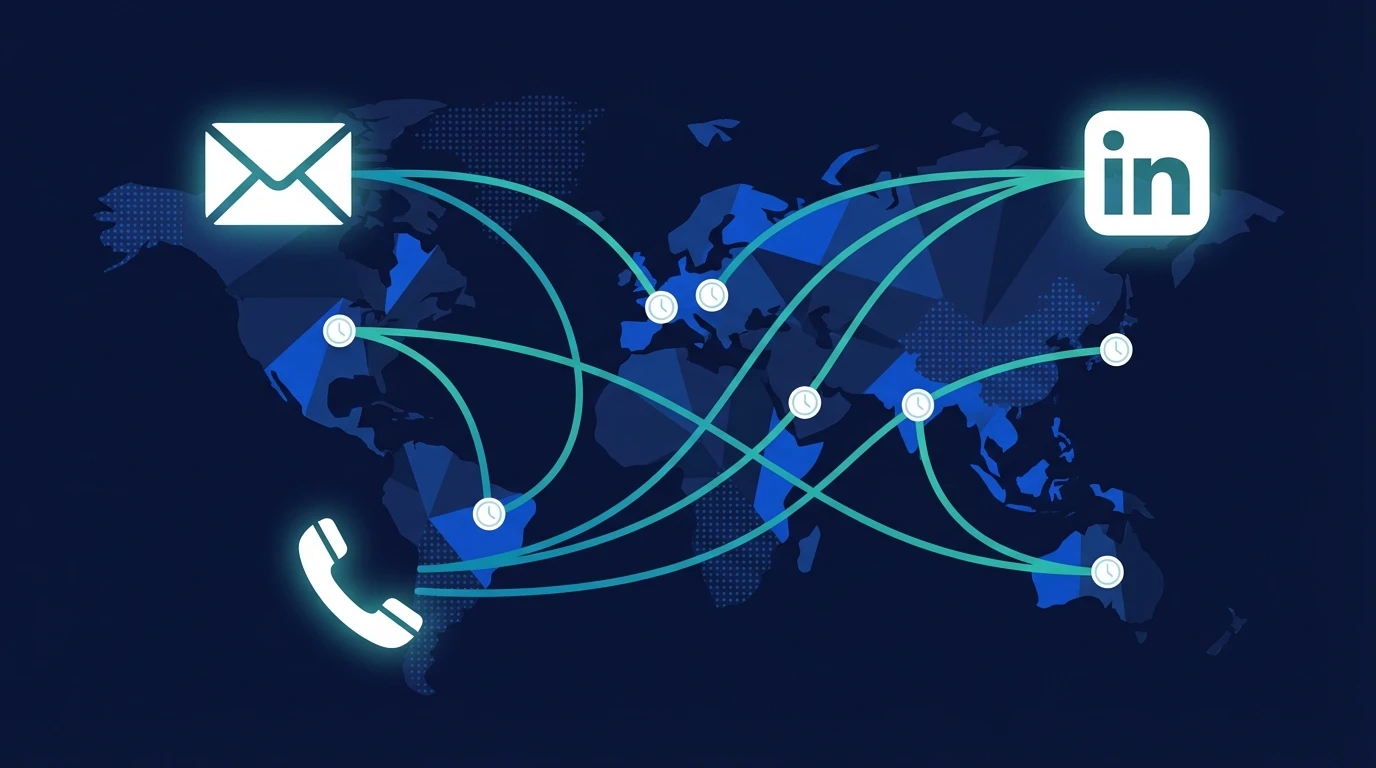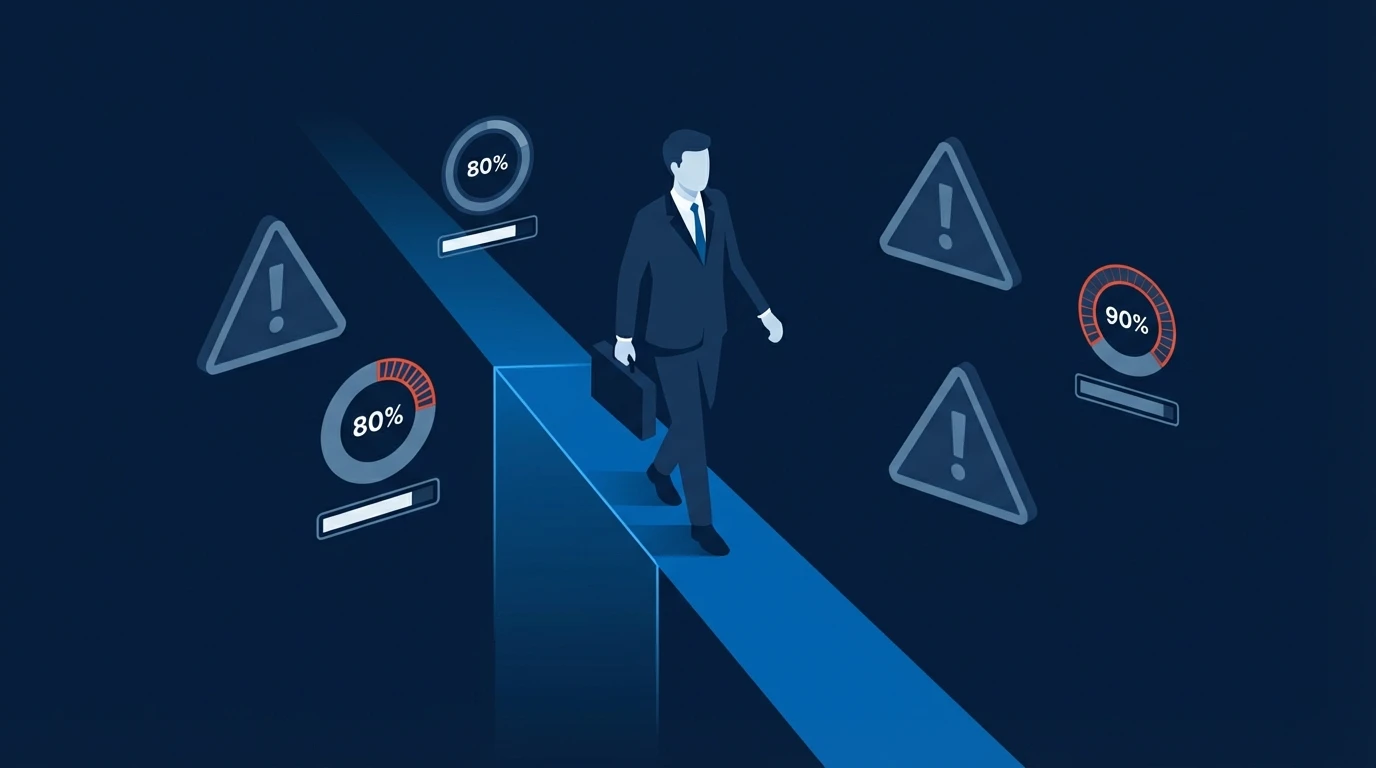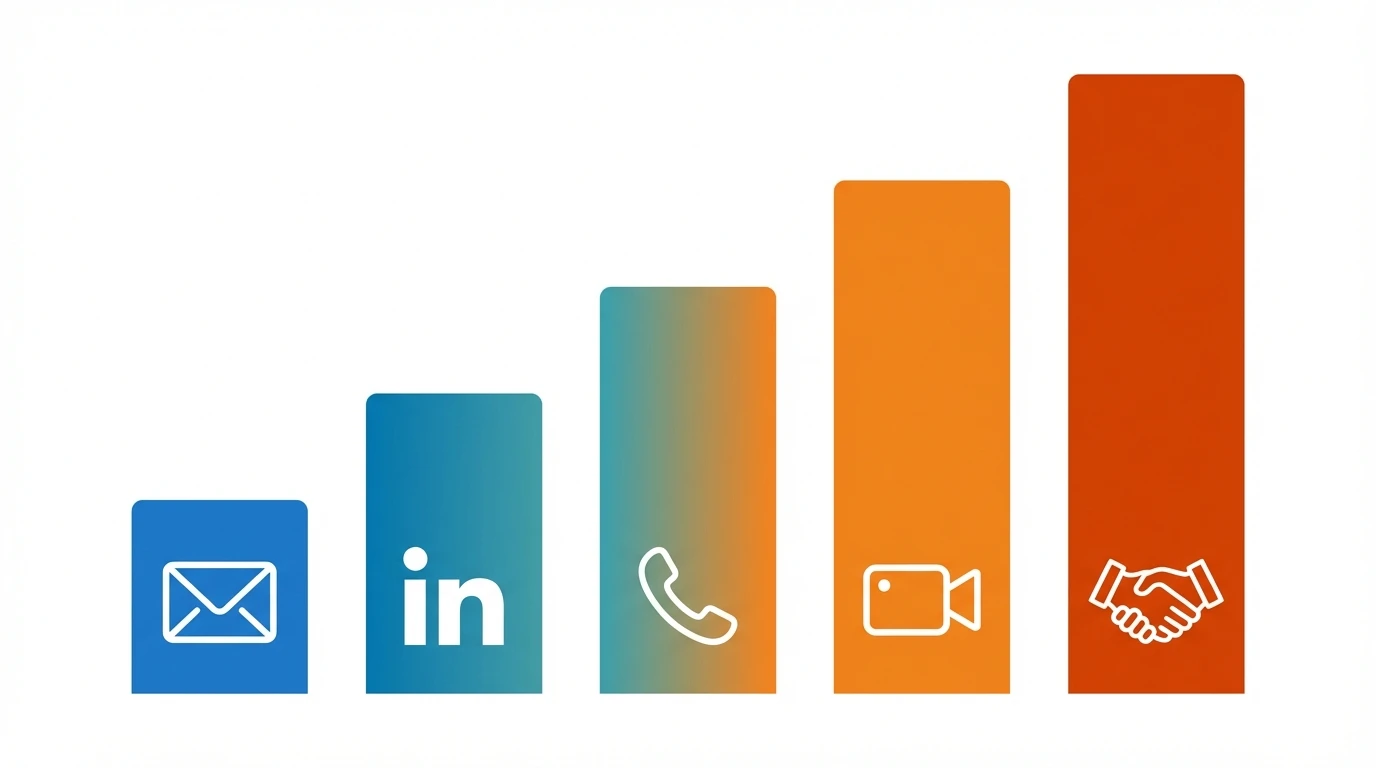The Future of B2B Sales in Sustainability
Estimated reading time: 6 minutes
Sustainability sales teams face a perfect storm. They juggle dozens of disconnected tools while navigating technical jargon, evolving regulations, and scattered ESG data that generic sales platforms ignore. The solution lies in vertical AI platforms that consolidate sustainability intelligence and automate prospecting. This transformation is happening now, with platforms like Emitree leading the charge.
The Current Challenge: Death by a Thousand Tools
Today's B2B sales teams use 10 to 11 different tools just to close deals. Each addresses one slice of the sales process but creates silos and extra work. Sales representatives waste hours exporting leads from Apollo, uploading them to email automation tools, and logging activities in Salesforce. According to Salesforce's latest report, 66% of representatives feel overwhelmed by their toolset.
This fragmentation hurts productivity in three ways:
- Data lives in silos: One system shows an old job title while another has the new one
- Representatives spend 70% of their time on administrative tasks rather than engaging customers
- Average technology spend reaches ~$6,000 per representative annually due to overlapping features
Consider a typical prospecting workflow. A salesperson finds an interesting account on a carbon registry, searches LinkedIn Sales Navigator for sustainability directors. They export names to Apollo for contact information. They enrich the data through CDP reports, ESG ratings, and sustainability reports. They upload contacts to Instantly for email sequences. They log everything in HubSpot. Each step requires manual work and introduces potential errors.
"For sustainability sellers, data gaps are costly."
Generic tools also miss critical context. ZoomInfo tells you a company's revenue but not whether they recently committed to net zero targets. Apollo provides email addresses but not which companies face new climate regulations. LinkedIn shows job changes but not carbon credit purchases. For sustainability sellers, these gaps are costly.
Why Sustainability Sales Demands Different Tools
Selling carbon credits, ESG software, or renewable energy solutions requires domain expertise that generic platforms cannot provide. Three factors make sustainability sales uniquely complex:
1. Technical Complexity
Salespeople must understand carbon registries like Verra and Gold Standard. They need fluency in reporting standards including GRI, SASB, and TCFD. The EU's Corporate Sustainability Reporting Directive expands reporting requirements from 11,700 to 49,000 companies. A representative needs to identify affected prospects and tailor messaging accordingly.
2. Fragmented Critical Data
Assessing a prospect's readiness might require checking their CDP reports, reviewing science based targets, and analyzing supply chain emissions data. Generic databases lack these vertical insights. Even when data exists, interpreting it requires expertise.
3. High-Stakes Consultative Deals
According to Deloitte, 85% of companies reported increasing their sustainability investments over the past year, attracting scrutiny from executives and boards. Buyers expect salespeople who understand both technology and environmental context.
"McKinsey estimates sustainable transport solutions alone will reach $2.7 trillion by 2030."
These challenges compound as the market accelerates. McKinsey estimates sustainable transport solutions alone will reach $2.7 trillion by 2030. Every sector sees surging demand for green solutions. Yet sales teams using horizontal tools chase wrong prospects with misaligned messaging.
The Future: Vertical Intelligence Transforms Sales
Forward thinking organizations are abandoning generic tools for vertical intelligence platforms. These solutions come preloaded with relevant data sources, terminology, and AI models trained on industry context.
Three Key Principles:
- Integration replaces fragmentation by combining firmographic, sustainability, and trigger data in one system
- Vertical replaces Horizontal creats AI that understands carbon markets, ESG metrics, and climate regulations
- Automation replaces manual work so representatives focus on relationship building rather than data entry
The future workflow looks radically different. AI continuously monitors signals across news, databases, and regulatory filings. When a company hires a sustainability director or announces climate targets, the system automatically initiates research and scoring. Within minutes, it compiles a complete profile including ESG initiatives, carbon transactions, and decision maker backgrounds.
How Emitree Builds This Future Today
Emitree exemplifies this vertical platform approach. Built exclusively for carbon markets and sustainability sectors, it consolidates everything a sustainability salesperson needs into one AI powered system.
Key Capabilities:
- Integrates multiple data layers: traditional firmographics with sustainability-specific intelligence
- Monitors invisible buying signals: carbon credit retirements, new sustainability hires, regulatory changes
- Automates hours of research: generate briefings covering ESG goals, carbon footprint, renewable energy usage
Early Results Signal Market Transformation
Interal early pilot results show promising early indicators with 2.5x pipeline growth and weekly research time cut from 10 hours to 10 minutes, we're part of a broader wave of AI-powered GTM tools delivering measurable impact in the tech industry.
Industry-Wide Results:
Clay's Customer Impact:
OpenAI:
- Doubled inbound lead enrichment rates from 40% to 80% using waterfall approach
- Automated custom GTM research at scale with Claygent, replicating what best sellers did manually:
- Website analysis, LinkedIn research, company developments
- Quarterly earnings report analysis
- 90-day company change tracking
Vanta (Compliance Platform):
- Created single source of truth for CRM data
- Monitors compliance signals: RSS feeds for funding, job postings for CISOs, website compliance updates
- AI-powered account research identifies SOC 2 badges, security pages, competitor tools
- Continuously updates Salesforce with funding rounds and custom prioritization objects
Verkada (Security Systems):
- 2x increase in LinkedIn ad targeting match rates
- 100% elimination of manual enrichment tasks across growth team
- 600+ personalized landing pages auto-generated per campaign via Clay-Webflow integration
- Scrapes local business websites in niche industries for targeted campaigns
Sendoso (Gifting Platform):
- 10x outbound productivity improvement
- 20% higher response rates with enriched data and personalized direct mail
- Over $1M in pipeline generated through personalized outreach
- Automated "wake the dead" campaigns: 75% open rate, 11% response rate
- Reduced research time from 10 minutes per prospect to fully automated
AI Sales Agents ROI:
- SaaStr sent 15,000 messages in 100 days with 5-7% response rates using Artisan
- Rox users reclaim 8+ hours weekly and increase customer activity by 35%
Champion Tracking Returns:
- UserTesting generated millions in pipeline and over $1M in closed-won revenue within one year
- UserGems has generated $4 billion in pipeline and over $950 million in revenue across hundreds of companies
- Leading teams seeing 15X ROI
Market Validation:
- Artisan raised $25 million
- Clay raised $204 million and powers 5,000+ customers including OpenAI, Vanta, Verkada, and Anthropic
- Rox raised $50 million after proving its enterprise approach works
Integration Benefits Compound Over Time
Vertical platforms create competitive advantages that grow stronger. The AI learns from every interaction, improving lead scoring and message optimization. Data accumulates, revealing patterns invisible to individual representatives. Teams build institutional knowledge rather than losing it when representatives leave.
"Automation handles pattern recognition, data synthesis, and repetitive tasks. Humans provide empathy, strategic thinking, and trust building."
Real time agility becomes possible. When new climate regulations pass, the system immediately identifies affected prospects and adjusts messaging. When market conditions shift, scoring models adapt automatically.
Why Sustainability Professionals Must Act Now
The sustainability market is exploding while sales complexity increases. Companies need solutions for carbon accounting, supply chain emissions, renewable energy procurement, and climate risk management. Buyers expect vendors who understand their world deeply.
Key Urgency Factors:
- Traditional sales approaches cannot scale to meet demand
- Generic tools lack critical context
- Manual processes waste valuable time
- Fragmented data creates costly blind spots
"Early adopters gain market share while others struggle. As more teams adopt vertical platforms, the competitive gap widens."
Taking Action: Your Path Forward
Immediate Steps:
-
Audit your sales process
- Document time spent on research vs. actual selling
- Calculate true cost of fragmented technology stack
- Measure current conversion rates and sales cycle lengths
-
Explore vertical platforms
- Request demonstrations from platforms like Emitree
- Compare capabilities against current toolset
- Evaluate ROI potential based on early adopter results
-
Pilot and measure
- Start with small team testing
- Track improvements in meetings booked and pipeline generated
- Use results to build organizational buy-in
The Competitive Imperative
"The sustainability revolution demands sales excellence. The future belongs to those who act today."
B2B sales in sustainability has reached an inflection point. Fragmented tools and generic approaches no longer suffice. Vertical intelligence platforms offer the integration, automation, and expertise needed to succeed. Companies that transform their sales operations now will lead the green economy.
The tools are available. The market opportunity is massive. For sales teams serious about sustainability success, the path forward is clear: embrace vertical intelligence and transform your sales capabilities. The future belongs to those who act today.
Key Takeaways:
- 10-11 tools create fragmentation and waste 70% of reps' time on admin tasks
- $2.7 trillion sustainable transport market by 2030 demands specialized tools
- Early adopters seeing 2.5x pipeline growth, 15X ROI, and 50% shorter sales cycles
- Vertical AI platforms deliver 80% SDR workflow automation




